Top 250 Movies Like Blood And Honor: Youth Under Hitler
A list of the best movies similar to Blood and Honor: Youth Under Hitler. If you liked Blood and Honor: Youth Under Hitler then you may also like: U-Boat, Course West!, The Victory of Faith, Voyage of the Damned, We Cellar Children, The Wonderful, Horrible Life of Leni Riefenstahl and many more great movies featured on this list.
Blood and Honor: Youth Under Hitler, 1982 is a German/American made for TV mini-series which was a co-production between Daniel Wilson Productions and S.W.F and Taurus Films. The original screenplay was by Helmut Kissel and was partly based on his own experience as a member of the Hitler Youth. The scripts that were eventually shot, however, were written by Robert Muller. Helmut Kissel led as the director of the project but was replaced by Bernd Fischerauer within the first couple of weeks when shooting started. The shooting was on location in Baden-Baden, West Germany with the first 4 weeks in August 1980 and the rest of the production was completed between January through March in 1981. Each scene was shot both in English and in German and resulted in two versions of the film. The post production of the German version was completed in spring of 1982. It premiered on West German TV in July 1982 and the American version premiered in November 1982.
The Victory of Faith
Follows the Fifth Nazi Party Rally (Nuremberg, 30 August–3 September 1933) and shows the then close relationship between Adolf Hitler and Ernest Rõhm.
Voyage of the Damned
A luxury liner carries Jewish refugees from Hitler's Germany in a desperate fight for survival.
The Wonderful, Horrible Life of Leni Riefenstahl
This documentary recounts the life and work of one of most famous, and yet reviled, German film directors in history, Leni Riefenstahl. The film recounts the rise of her career from a dancer, to a movie actor to the most important film director in Nazi Germany who directed such famous propaganda films as Triumph of the Will and Olympiad. The film also explores her later activities after Nazi Germany's defeat in 1945 and her disgrace for being so associated with it which includes her amazingly active life over the age of 90.
Why We Fight: The Nazis Strike
The second film of Frank Capra's Why We Fight propaganda film series. It introduces Germany as a nation whose aggressive ambitions began in 1863 with Otto von Bismarck and the Nazis as its latest incarnation.
A Night at the Garden
Archival footage of an American Nazi rally that attracted 20,000 people at Madison Square Garden in 1939, shortly before the beginning of World War II.
The Rest Is Silence
'The Rest Is Silence, a German-made attempt to update Shakespeare, is one of the best and least self-conscious of this minor genre. As indicated by the title, the film's script is a "mufti" version of Hamlet, with young Hardy Krüger trying to prove that his uncle has killed his father. Direct references to the Shakespeare original abound, right down to the re-enactment of the crime for the benefit of the Uncle and the periodic appearances of the ghost of the hero's father.'
Reunion
Attorney Henry Strauss grew up in Germany, but left the country with his Jewish family during the rise of the Third Reich. Still wondering about what happened to his boyhood friend Konradin Von Lohenburg, Strauss travels back to Germany for the first time since he was a young man, bringing up some painful memories.
Rosenstrasse
When Ruth's husband dies in New York, in 2000, she imposes strict Jewish mourning, which puzzles her children. A stranger comes to the house - Ruth's cousin - with a picture of Ruth, age 8, in Berlin, with a woman the cousin says helped Ruth escape. Hannah, Ruth's daughter engaged to a gentile, goes to Berlin to find the woman, Lena Fisher, now 90. Posing as a journalist investigating intermarriage, Hannah interviews Lena who tells the story of a week in 1943 when the Jewish husbands of Aryan women were detained in a building on Rosenstrasse. The women gather daily for word of their husbands. The film goes back and forth to tell Ruth and Lena's story. How will it affect Hannah?
It Happened on July 20th
A dramatic reconstruction of the July 1944 attempt by German Army Officers to assassinate Hitler with a bomb and end the war before Germany was totally destroyed.
Jew Suss: Rise and Fall
This intricate historical drama tells the story of actor Ferdinand Marian (Tobias Moretti), who is ordered by Nazi propagandist Joseph Goebbels to star in the 1940 anti-Semitic film Jew Suss. Despite his cooperation, Ferdinand's actions have unexpected costs. Ferdinand's Jewish wife, Anna (Martina Gedeck), is sent to a concentration camp, and as World War II intensifies, he rebels against the Nazis, leading to the destruction of his career.
Battle of Norway - Campaign 1940
Kampf um Norwegen – Feldzug 1940 is a 1940 Nazi propaganda film directed by Martin Rikli and Dr. Werner Buhre under orders of the Oberkommando der Wehrmacht. The documentary film follows the Invasion of Denmark and Norway in the spring of 1940
Address Unknown
When a German art dealer living in the US returns to his native country he finds himself attracted to Nazi propaganda.
Au Revoir les Enfants
Au revoir les enfants tells a heartbreaking story of friendship and devastating loss concerning two boys living in Nazi-occupied France. At a provincial Catholic boarding school, the precocious youths enjoy true camaraderie—until a secret is revealed. Based on events from writer-director Malle’s own childhood, the film is a subtle, precisely observed tale of courage, cowardice, and tragic awakening.
Before the Fall
In 1942, Friedrich Weimer's boxing skills get him an appointment to a National Political Academy (NaPolA) – high schools that produce Nazi elite. Over his father's objections, Friedrich enrolls. During his year in seventh column,Friedrich encounters hazing, cruelty, death, and the Nazi code. His friendship with Albrecht, the ascetic son of the area's governor, is central to this education.
Black Fox: The Rise and Fall of Adolf Hitler
The rise and fall of Nazi Germany in part through the use of classical allegory.
The Bunker
Dramatization depicting the events surrounding Adolf Hitler's last weeks in and around his underground bunker in Berlin before and during the battle for the city.
The Captain
Germany, 1945. Soldier Willi Herold, a deserter of the German army, stumbles into a uniform of Nazi captain abandoned during the last and desperate weeks of the Third Reich. Newly emboldened by the allure of a suit that he has stolen only to stay warm, Willi discovers that many Germans will follow the leader, whoever he is.
Conspiracy
The historical recreation of the 1942 Wannsee Conference, in which Nazi and SS leaders gathered in a Berlin suburb to discuss the "Final Solution to the Jewish Question". Led by SS-General Reinhard Heydrich, this group of high ranking German officials came to the historic and far reaching decision that the Jews of Europe were to be exterminated in what would come to be known as the Holocaust.
Downfall
In April of 1945, Germany stands at the brink of defeat with the Russian Army closing in from the east and the Allied Expeditionary Force attacking from the west. In Berlin, capital of the Third Reich, Adolf Hitler proclaims that Germany will still achieve victory and orders his generals and advisers to fight to the last man. When the end finally does come, and Hitler lies dead by his own hand, what is left of his military must find a way to end the killing that is the Battle of Berlin, and lay down their arms in surrender.
Munich: The Edge of War
At the tense 1938 Munich Conference, former friends who now work for opposing governments become reluctant spies racing to expose a Nazi secret.
Good
When John Halder's latest novel is enlisted by powerful political figures in the Nazi party to push their agenda, his career and social standing instantly advance. But after learning of the Reich's horrific plans for the future and the devastating effects they will have on people close to him, John must decide whether or not to take a stand and risk losing everything.
Jojo Rabbit
A World War II satire that follows a lonely German boy whose world view is turned upside down when he discovers his single mother is hiding a young Jewish girl in their attic. Aided only by his idiotic imaginary friend, Adolf Hitler, Jojo must confront his blind nationalism.
Der Fuehrer's Face
A marching band of Germans, Italians, and Japanese march through the streets of swastika-motif Nutziland, serenading "Der Fuehrer's Face." Donald Duck, not living in the region by choice, struggles to make do with disgusting Nazi food rations and then with his day of toil at a Nazi artillery factory. After a nervous breakdown, Donald awakens to find that his experience was in fact a nightmare.
White Bird
Julian Albans, the bully who left Beecher Prep, is visited by his Grandmère from Paris and is transformed by her remarkable story of compassion and courage. As a girl in Nazi-occupied France, the young Grandmère goes into hiding with the help of a schoolmate, a young man who risks everything to give her the chance to survive. Together, they find beauty and love in the secret world of their own creation.
Valkyrie
Wounded in Africa during World War II, Nazi Col. Claus von Stauffenberg returns to his native Germany and joins the Resistance in a daring plan to create a shadow government and assassinate Adolf Hitler. When events unfold so that he becomes a central player, he finds himself tasked with both leading the coup and personally killing the Führer.
The Devil's General
Curt Jurgens stars as a courageous Luftwaffe officer. Jurgens loves the service, even though he barely tolerates the Hitler regime. Sickened by wartime Nazi atrocities, Jurgens renounces his government, and is imprisoned and tortured as a result. Once released, the general takes pity on a downtrodden Jewish family. This isolated act of kindness is a point in his favor when Jurgens stands before Satan himself for his final judgment. The Devil's General was based on an immensely successful postwar play by German author Carl Zuckmeyer.
Europa Europa
A Jewish boy separated from his family in the early days of WWII poses as a German orphan and is taken into the heart of the Nazi world as a 'war hero' and eventually becomes a Hitler Youth.
Final Account
A depiction of the last living generation of German participants in Adolf Hitler’s Third Reich.
The Formula
While investigating the death of a friend and fellow cop, Los Angeles police officer Barney Caine stumbles across evidence that Nazis created a synthetic alternative to gasoline during World War II. This revelation has the potential to end the established global oil industry, making the formula a very valuable and dangerous piece of information. Eventually, Caine must contend with oil tycoon Adam Steiffel, who clearly has his own agenda regarding the formula.
The Garden of the Finzi-Continis
In late 1930s Ferrara, Italy, the Finzi-Continis are a leading family: wealthy, aristocratic, and urbane; they are also Jewish. Their adult children, Micol and Alberto, gather a diverse circle of friends for tennis and parties at their villa with its lovely grounds, and try to keep the rest of the world at bay. But tensions between them all grow as anti-Semitism rises in Fascist Italy, and even the Finzi-Continis will have to confront the Holocaust.
Germany Pale Mother
Germany 1939. Hans and Lene marry the day before the war breaks out, and Hans is sent to the Eastern front. During a bombing raid their daughter Anna is born. The house is destroyed and Lene and Anna moves in with relatives in Berlin. Hans survives the war but he is not the same person as in 1939, and he and Lene find it difficult to live together again.
Hitler: The Last Ten Days
Hitler: The Last Ten Days takes us into the depths of der Furher’s Berlin bunker during his final days. Based on the book by Gerhard Boldt, it provides a bleak look at the goings-on within, and without.
13 Minutes
The breathtaking story of a man who nearly would have changed the world. In 1939, when Hitler tricked millions of people at the height of his power, radical Georg Elser — disparaged as an assassin — is one of the greatest resistance fighters.
Night of the Zombies
Investigators search for soldiers' missing bodies, and hear unbelievable rumors about zombies. Dismissing those rumors they set out to investigate. After two men are found dead, CIA special-agent Nick Monroe is sent to flush out what are suspected to be deserters from the old U.S. Army Chemical Corps unit. Not to be confused with the 1980 Italian film of the same name (in USA).
Hitler's Reign of Terror
A documentary meant to show Americans what had been going on in Germany since Hitler's rise, centered on a fact finding trip by Cornelius Vanderbilt, with newsreel footage of book burnings and such.
Look Who's Back
When Adolf Hitler reawakens at the site of his former bunker in present-day Berlin, he is mistaken for a comedian and quickly becomes a media phenomenon.
The Mortal Storm
The Roth family leads a quiet life in a small village in the German Alps during the early 1930s. When the Nazis come to power, the family is divided and Martin Brietner, a family friend is caught up in the turmoil.
The Scoundrel's Wife
Already an outcast for crimes she did not commit, a woman struggling to raise her two children in a small village during World War II is suspected of being a saboteur.
The Sorrow and the Pity
From 1940 to 1944, France's Vichy government collaborated with Nazi Germany. Marcel Ophüls mixes archival footage with 1969 interviews of a German officer and of collaborators and resistance fighters from Clermont-Ferrand. They comment on the nature, details and reasons for the collaboration, from anti-Semitism, xenophobia, and fear of Bolsheviks, to simple caution. Part one, "The Collapse," includes an extended interview with Pierre Mendès-France, jailed for anti-Vichy action and later France's Prime Minister. At the heart of part two, "The Choice," is an interview with Christian de la Mazière, one of 7,000 French youth to fight on the eastern front wearing German uniforms.
Operation Valkyrie
In 1944, a group of high command officers plot an attempt against Hitler, and one of the leaders of the conspiracy, Stauffenberg (Sebastian Koch), goes to a meeting with the Fuhrer in charge of exploding the place. However, Hitler survives and the officers are executed. This unsuccessful operation was called "Valkyrie Operation", and this realistic movie discloses this true event.
The Strange Death of Adolf Hitler
A man who is a dead ringer for Adolf Hitler plans to murder him and take over his identity.
Swing Kids
The story of a close-knit group of young kids in Nazi Germany who listen to banned swing music from the US. Soon dancing and fun leads to more difficult choices as the Nazi's begin tightening the grip on Germany. Each member of the group is forced to face some tough choices about right, wrong, and survival.
Theresienstadt
Nazi propaganda film about the "Theresienstadt ghetto". The film was supposed to show the world that Jews didn't suffer in concentration camps. Upon completion, most Jews shown in the film (including director Kurt Gerron) were brought to Auschwitz, where they were killed.
Triumph of the Will
A showcase of German chancellor and Nazi Party leader Adolf Hitler at the 1934 Nuremberg Rally.
Der Röhm-Putsch
The documentary play reconstructs the backstory of the so-called “Röhm Putsch”, during which a few hundred people got killed, depicts the intrigues between the Reichswehr (German army) and the SA, and draws an image of the character of Röhm who, prior to Hitler’s accession to power, was his friend but later got pushed more and more into the background and eventually was disposed of. Röhm, captain during the 1st World War, organisational talent, daredevil, and one of the ‘discoverers’ of the corporal Hitler, was the central figure in the secret power struggles in the just established Hitler state. He demanded a ’second revolution’ and wanted to unite the million-man army of the SA and the Reichswehr under his leadership…
Lili Marleen
The story of a German singer named Willie who while working in Switzerland falls in love with a Jewish composer named Robert whose family is helping people to flee from the Nazis. Robert’s family is skeptical of Willie, thinking she could be a Nazi as she becomes famous for singing the song “Lili Marleen”.
Max Schmeling
Based on the true story of Max Schmeling. A national hero in the 1930's when he became World heavyweight champion. He lost favour with the Nazi regime when he lost to a black man, Joe Louis, and is sent to the front in the hope he will be killed in battle.
The Two-Headed Spy
Wartime thriller with film noir elements based on a true story as written in A.P. Scotland's autobiography "The London Cage". The plot has greatly exaggerated the actual events of A.P. Scotland's experiences, including the addition of a fictional love interest.
My Führer
Hitler no longer believes in himself, and can barely see himself as an equal to even his sheep dog. But to seize the helm of the war he would have to create one of his famous fiery speeches to mobilize the masses. Goebbels therefore brings a Jewish acting teacher Grünbaum and his family from the camps in order to train the leader in rhetoric. Grünbaum is torn, but starts Hitler in his therapy ...
David
Although members of the Hitler Youth chant anti-Semitic paroles in front of his house during the Purim festival, Rabbi Singer is still profoundly convinced that Germany will stay a safe country for him, his family, and his fellow believers. But several years later, his son David is banned from going to school because he is a Jew. Shortly after, Rabbi Singer and his wife are deported. Now, young David also fears for his life. In constant fear of being detected, he tries to find a way to leave Germany.
2 or 3 Things I Know About Him
What would your family reminiscences about dad sound like if he had been an early supporter of Hitler’s, a leader of the notorious SA and the Third Reich’s minister in charge of Slovakia, including its Final Solution? Executed as a war criminal in 1947, Hanns Ludin left behind a grieving widow and six young children, the youngest of whom became a filmmaker. It's a fascinating, maddening, sometimes even humorous look at what the director calls "a typical German story." (Film Forum)
Where Hands Touch
Germany, 1944. Leyna, the 15-year old daughter of a white German mother and a black African father, meets Lutz, a compassionate member of the Hitler Youth whose father is a prominent Nazi soldier, and they form an unlikely connection in this quickly changing world.
The Silent Revolution
Stalinstadt, East Germany, 1956. While the Hungarian uprising against Soviets is taking place, teenage members of a classroom of the local school perform a seemingly harmless act that causes unexpected consequences.
Winter Journey
Tucson, Arizona, September 1996. At the request of his son Martin, George Goldsmith tells him of his past in Nazi Germany as a member of a family of Jewish musicians and the strange history of the Jüdischer Kulturbund, a Jewish organization sponsored by Reichsminister Joseph Goebbels.
Junge Adler
Director Brakke has good reason to be happy: he has just received the news that his son, Theo, won first place in the local boat race. To be sure, he had forbidden his son to take part in the competition, because the son's grades in school are substandard. In the end, Brakke sees no other way than to pull Theo from school and install him as an apprentice in his airplane manufacturing plant. Although Theo is received by the other 150 apprentices in a friendly fashion, he behaves in an arrogant and disrespectful tone towards them. He feels himself to be better than them, because his father is the director of the factory.
Hitler's Hollywood
Film journalist and critic Rüdiger Suchsland examines German cinema from 1933, when the Nazis came into power, until 1945, when the Third Reich collapsed. (A sequel to From Caligari to Hitler, 2015.)
Defying the Nazis: The Sharps' War
Join an American couple’s courageous mission in 1939 to help refugees escape Nazi-occupied Europe. Over the course of two years, the pair will risk their lives so that hundreds can live in freedom.
The Devil's Arithmetic
An American-born Jewish adolescent, Hannah Stern, is uninterested in the culture, faith and customs of her relatives. However, she begins to revaluate her heritage when she has a supernatural experience that transports her back to a Nazi death camp in 1941. There she meets a young girl named Rivkah, a fellow captive in the camp. As Rivkah and Hannah struggle to survive in the face of daily atrocities, they form an unbreakable bond.
The Plot to Kill Hitler
A historical recreation of the 1944 attempt by several German High Command Officers to assassinate Adolf Hitler and take control of the German government.
Hitler's SS : Portrait In Evil
The two-part TV movie Hitler's SS: Portrait in Evil crystallizes that evil by concentrating on two Berlin brothers. In 1931, Helmut Hoffman a brilliant student and self-styled opportunist, joins Hitler's SS. At the same time, his younger brother Karl, a top athlete and idealist, becomes a chauffeur for the "S.A.".
Neger, Neger, Schornsteinfeger
This drama is based on the childhood memories of Hans Jürgen Massaquoi, who was one of the few black native Germans in Nazi Germany. In 1935 at the age of nine, he lives with his German mother in a small flat in Hamburg's working class district Barmbek, while his father and grandfather had left the country. Although the boy is not persecuted by the Nazis and dreams of joining the Hitler Youth, his skin color makes him a target for racist abuse...
The Hitler Gang
This movie shows us the rise of Adolf Hitler from a small radical political adventurer to the dictator of Germany in the way of a gangster film. Exept for some minor inaccuracies the historical facts are given in a correct way.
The Bridge
A group of German boys is ordered to protect a small bridge in their home village during the waning months of the second world war. Truckloads of defeated, cynical Wehrmacht soldiers flee the approaching American troops, but the boys, full of enthusiasm for the "blood and honor" Nazi ideology, stay to defend the useless bridge.
Hitler Youth Quex
Nazi propaganda film based on the life and death of Hitler Youth Herbert "Quex" Norkus – in the film, renamed Heini Völker – who was killed while distributing flyers in a Communist neighborhood.
When Hitler Stole Pink Rabbit
In 1933 in Berlin. Anna is only nine years old when her life changes from the ground up. To escape the Nazis, her father Arthur Kemper, a well-known Jewish journalist, has to flee to Zurich. His family, Anna, her twelve-year-old brother Max and her mother Dorothea, follow him shortly thereafter. Anna has to leave everything behind, including her beloved pink rabbit, and to face a new life full of challenges and privations abroad.
Erna, Helmut and the Nazis
Germany, 1929. Helmut Machemer and Erna Schwalbe fall madly in love and marry in 1932. Everything indicates that a bright future awaits them; but then, in 1933, Adolf Hitler and the Nazi Party rise to power and their lives are suddenly put in danger because of Erna's Jewish ancestry.
Passport to Destiny
An English charwoman, believing herself protected by a magic eye amulet, travels to Nazi Germany to personally assassinate Adolf Hitler.
Neue Vahr Süd
Frank Lehmann, 20, still lives with his parents in the dreary high-rise housing project "Neue Vahr" in Bremen. It's the year 1980 and Frank gets drafted to the army even though his friends assure him that "he's not really the guy for it". When he gets back home, after his first week at the army, his Dad has turned his room into a TV repair shop, so Frank has to move out. Luckily his old friend Martin is starting a commune with two other Punks in Bremens leftist borough "Viertel". Frank, without further ado rents the unlivable walk-through room. From now on Frank is a traveler between the Worlds. Each week he goes from the Army, with all the unconditional rules and regulations to the commune where his friends are preaching the world revolution. Frank is trying to avoid to stick out, but fails miserably, in both worlds.
Nazi Titanic
During a bizarre chapter of WWII, Nazi propaganda minister Joseph Goebbels decided to make a movie based on the sinking of the Titanic. This epic film was so large in scale that the Nazis were forced to divert men, material and ships from the war effort in order to complete it. Titanic was filmed aboard cruise ship SS Cap Arcona in the Baltic Sea. The movie’s director Herbert Selpin was arrested by the Gestapo over comments he made about the ship’s crew and he was questioned by Goebbels. Selpin was found dead the next day in his cell. The Gestapo’s verdict was suicide. Titanic never received the impressive premiere that Goebbels intended, being first shown in Nazi-occupied Paris in 1943. We reveal this little known but fascinating story by looking at the making of the film, as well as the fate of the German ship Cap Arcona.
The Third Reich In Color
This remarkable trove of color footage, assembled from far-flung private and state collections, presents Hitler's Europe as never seen before. Amateur film enthusiasts - soldiers, tourists, Hitler's own pilot, even Hitler's mistress, Eva Braun - began experimenting with color film in the late 1930s, their camera eye recording the Third Reich from every angle. Some of this film was only recently uncovered in former Soviet-bloc archives, hidden for almost 60 years; all of it, thanks to digital technology, has been newly transferred to video with surprising clarity. (This documentary was produced with two different narratives, both an English and German language version.)
Hitler in Colour
Documentary using only original colour footage charts the 12 years from Adolf Hitler's rise to power to the fall of Berlin in 1945. Complemented by eyewitness material, tracks the dramatic transformation of Germany into a Nazi state, looks into Hitler's relationship with his lover Eva Braun and replicates pivotal events, including Nazi rallies, the invasion of Poland, Hitler's meeting with Lloyd George, the horrors of Buchenwald concentration camp, Warsaw's Jewish Ghetto, the Battle of Britain and the fall of Berlin.
Albert & Hermann Goering
Two brothers who could not have been more different. The eldest, Hermann Göring (1893-1946), was a prominent member of the Nazi regime, head of the German Air Force, and a war criminal. The youngest, Albert Göring (1895-1966), opposed tyranny and was persecuted, but today he is still unjustly forgotten, although he saved many lives while his brother and his accomplices ravaged Europe.
American Traitor: The Trial of Axis Sally
The life of American woman Mildred Gillars and her lawyer, who struggles to redeem her reputation. Dubbed “Axis Sally” for broadcasting Nazi propaganda to American troops during World War II, Mildred’s story exposes the dark underbelly of the Third Reich's hate-filled propaganda machine, her eventual capture in Berlin, and subsequent trial for treason against the United States after the war.
The Wannsee Conference
A real time recreation of the 1942 Wannsee Conference, in which leading SS and Nazi Party officals gathered to discuss the "Final Solution to the Jewish Question". Led by SS-General Reinhard Heydrich, the Wannsee Conference was the starting point for the Jewish Holcaust which led to the mass murder of six million people.
Summer of '44 - The Lost Generation
Summer 1944, Schwäbisch Hall. Contrary to the war propaganda and the decreed heroism, the 16-year-old boys dream of Swing music, sex and freedom - and of Lore, the air force helper from the air base, who attracts all eyes in her red swimsuit. At the same time, uncle, Knuffke, Bubu, tongue kiss and Hosenmacher suspect that they will not escape the horror of the front. "Stay tuned," Lore calls after them. But tongue kiss gets it first and also pants maker will not survive the war.
Tomorrow, the World!
German boy Emil comes to live with his American uncle who tries to teach the former Hitler Youth to reject Nazism.
The Plot to Assassinate Hitler
A disillusioned Wehrmacht officer named Colonel Claus von Stauffenberg and his co-conspirators attempt to assassinate Adolf Hitler on 20 July 1944.
The Edelweiss Pirates
Cologne towards the end of the Second World War. The city is in ruins, everyone is afraid, many are dead. It is a time of great inhumanity. Cologne’s young Edelweiss Pirates refuse to submit to the pressure of the Nazi regime. They fight with the Hitler Youth and scrawl anti-war propaganda on walls. Karl is an Edelweiss Pirate; his younger brother, Peter, is in the Hitler Youth movement. The two young men have been alone ever since their mother’s death in a bombing raid; their father is serving at the front, and their older brother, Otto, has been killed in action. Otto’s financée, Cilly, is doing her best to survive the war with her children. Carl is trying to help her.
Pastor Hall
This film is based on the true story of Pastor Martin Neimuller, who was sent to Dachau concentration camp for criticising the Nazi party. The small German village of Altdorf in the 1930's has to come to terms with Chancellor Hitler and the arrival of a platoon of Stormtroopers (preceded by a flock of sheep). The Stormtrooper go about teaching and enforcing 'The New Order' but Pastor Hall is a kind and gentle man who won't be cowed. Some villagers join the Nazi party avidly, some just go along with things, hoping for a quiet life but Pastor Hall takes his convictions to the pulpit.
Women in Bondage
Women in Bondage is a 1943 World War II film about conditions for women under Hitler's regime. The plot involves two women imprisoned for speaking out against the government. It was directed by Steve Sekely and starred Gail Patrick and Nancy Kelly.
In Those Days
A car tells its story and the story of its seven owners during the years of the Third Reich.
Hideouts
In this well-photographed and sometimes confusing wartime drama, an Austrian village experiences the tragedy of war on several different levels. Within one family, the younger son is jealous of the praise his father gives to a Polish POW who is working for them under very difficult conditions. Within the village as a whole, the French, Polish, and Russian POWs are kept under guard by Nazi soldiers, creating a tense situation all around. But more importantly, the village has conspired to hide an Austrian deserter in a cave up in the mountains. This act of rebellion on the part of the deserter and the village hangs in a precarious balance that could be upset by a single traitorous comment to the Gestapo.
Olympia Part One: Festival of the Nations
The First part of Olympia, a documentary about the 1936 Olympic games in Berlin by German Director Leni Riefenstahl. The film played in theaters in 1938 and again in 1952 after the fall of the Nazi Regime.
God Does Not Believe in Us Anymore
After his father is murdered by the Nazis in 1938, a young Viennese Jew named Ferry Tobler flees to Prague, where he joins forces with another expatriate and a sympathetic Czech relief worker. Together with other Jewish refugees, the three make their way to Paris, and, after spending time in a French prison camp, eventually escape to Marseille, from where they hope to sail to a safe port
Genocide
The mass murder of Jewish people by the Nazi regime is chronicled, with a warning that anti-Semitism is on the rise and the events of the Holocaust could happen again. The history of European Jewish culture and events before and during the Holocaust are seen in newsreels, photographs, and animated segments. The words of the victims of the era are read, and footage from the liberation os a concentration camp is shown.
The True Glory
A documentary account of the allied invasion of Europe during World War II compiled from the footage shot by nearly 1400 cameramen. It opens as the assembled allied forces plan and train for the D-Day invasion at bases in Great Britain and covers all the major events of the war in Europe from the Normandy landings to the fall of Berlin.


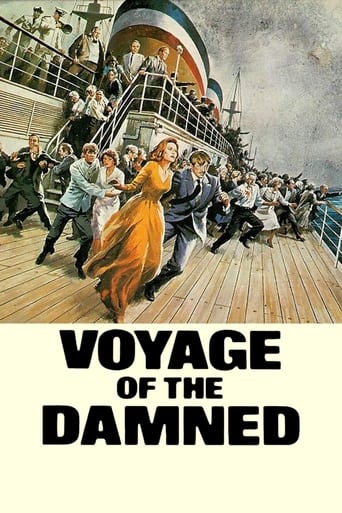
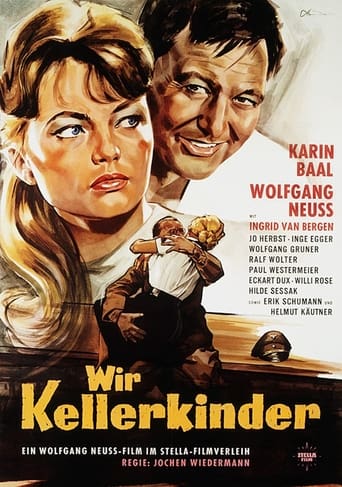





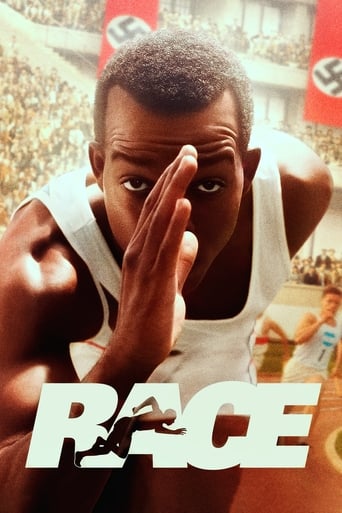

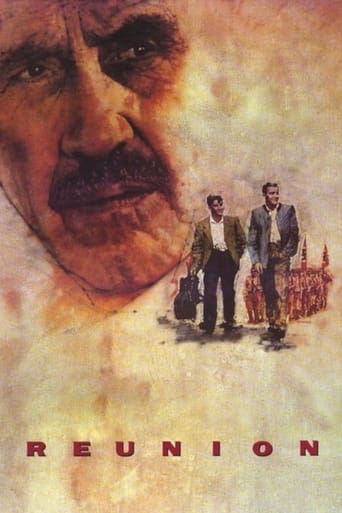

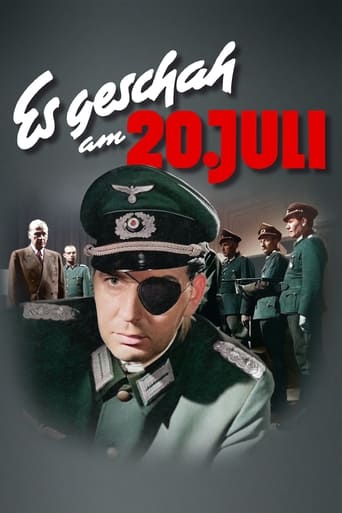


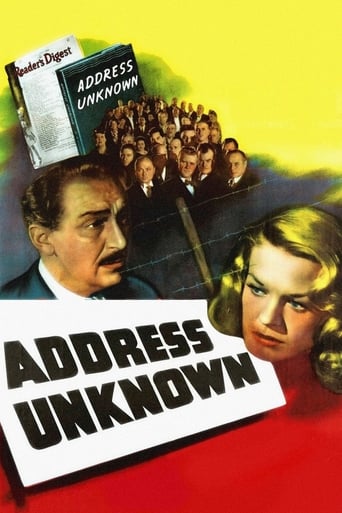
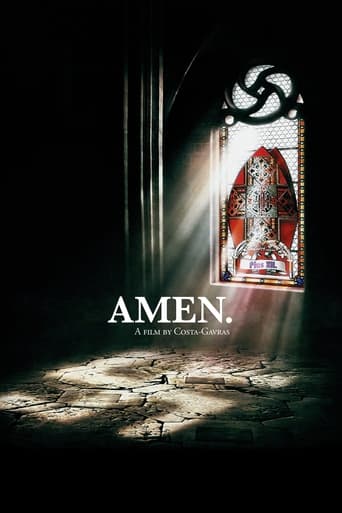



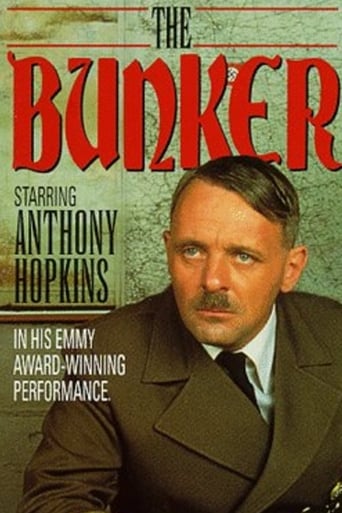
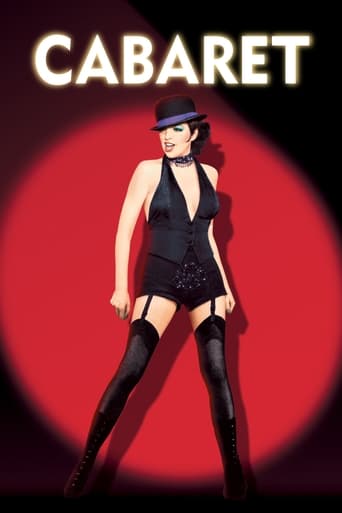

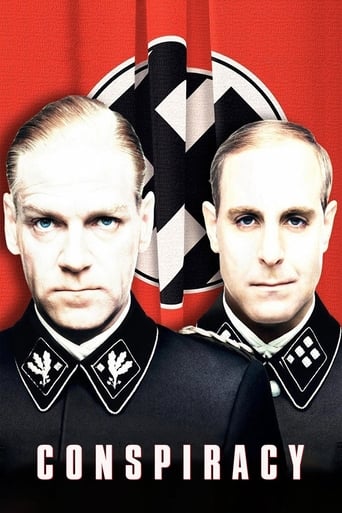






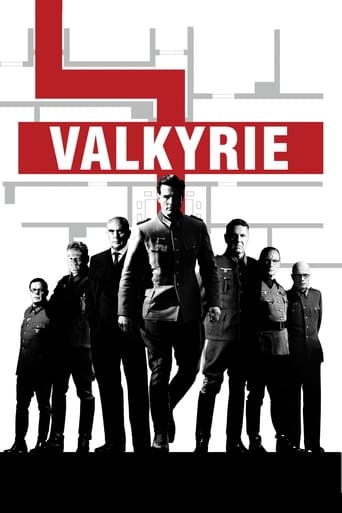











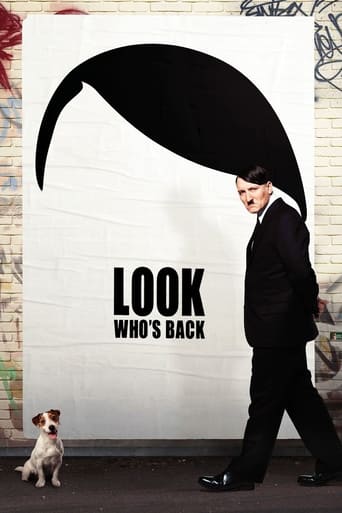
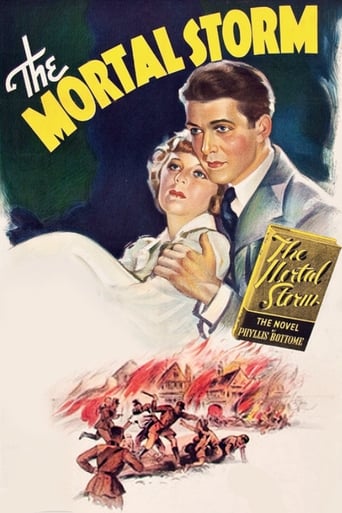







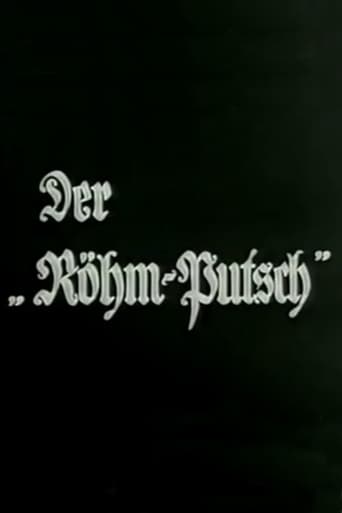
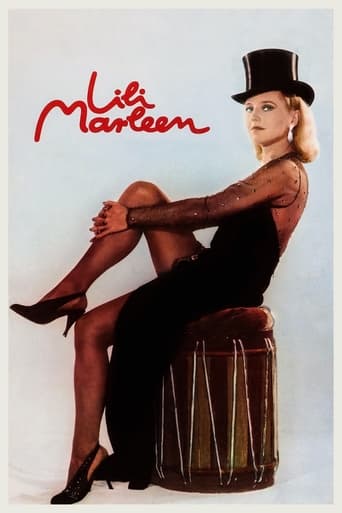





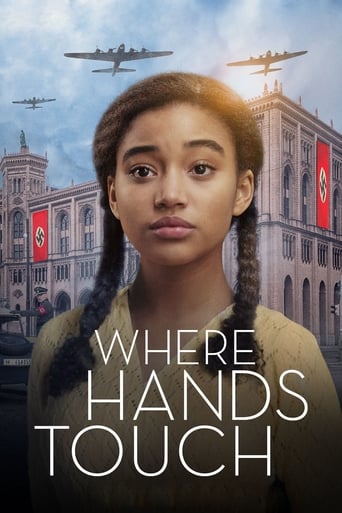





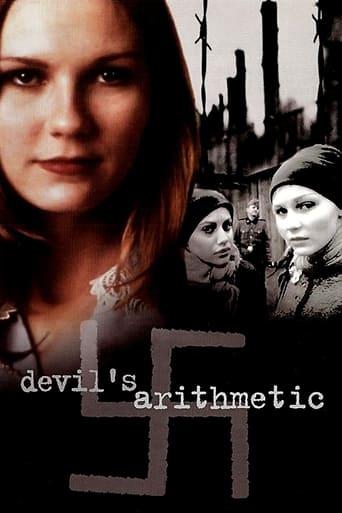


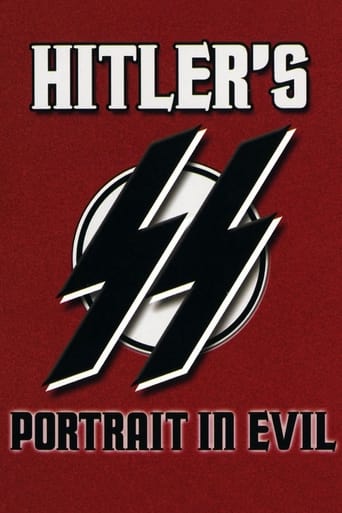

















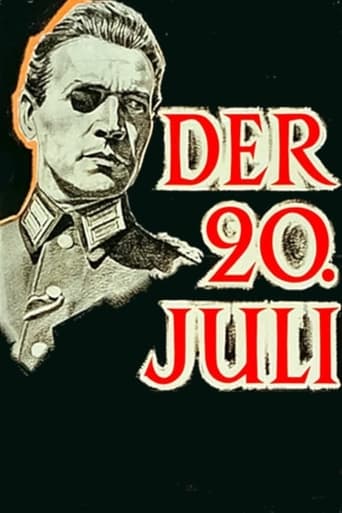

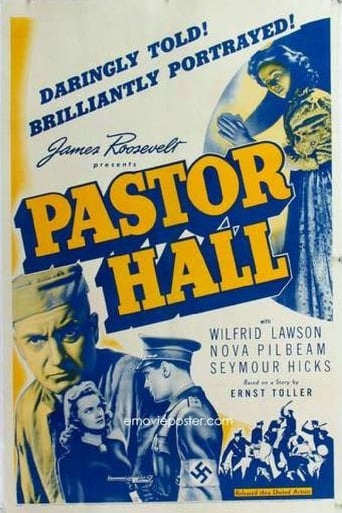



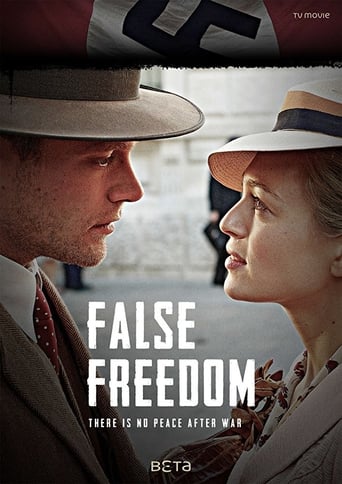





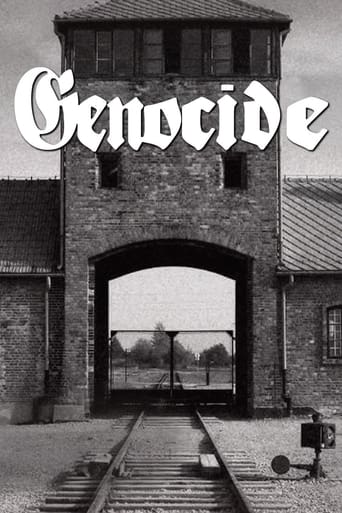
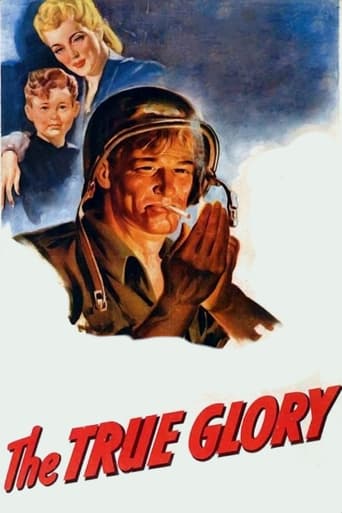
U-Boat, Course West!
This Nazi propaganda film follows the exploits of a German submarine as it prowls the North Atlantic.